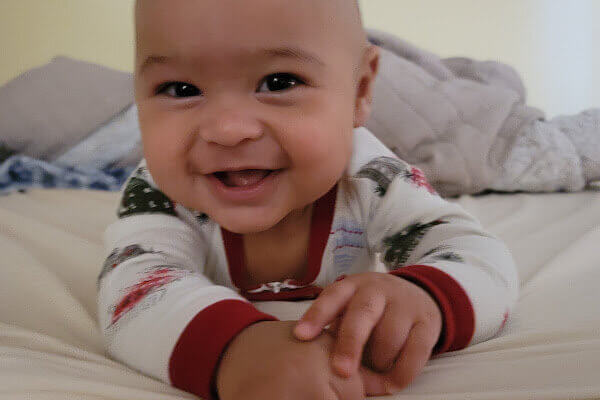 This might sound harsh, but hear us out: Letting your baby soothe (and yes, that might mean cry) himself to sleep could have big benefits, according to recent Temple University research.
This might sound harsh, but hear us out: Letting your baby soothe (and yes, that might mean cry) himself to sleep could have big benefits, according to recent Temple University research.
Babies six months and older who are left to cry it out are more skilled at self-soothing, which is important. And mothers of babies and toddlers who sleep well are less likely to be depressed.
Experts agree. “Many parents can’t handle the idea of leaving their baby to cry, but babies actually do better when you limit the amount of interference imposed on their nighttime sleep,” says Alanna McGinn, a certified sleep consultant and founder of GoodNightSleepSite.com. And less interference during sleep means better, healthier sleep—for your baby and you.
Still worried you might be powerless against your baby’s midnight whimpers? Here’s how to help him learn to self-soothe without feeling like a bad guy.
Test the waters
You don’t have to just leave your baby in his crib, close the door, and walk away. Instead, try an interval method, suggests McGinn. When your baby starts crying, wait five minutes before checking on him. Next time, hold off for 10 minutes, and so on. With fewer interruptions, he might fall back asleep quicker than you expect.
Get rid of sleep aids
You’re probably not the only parent that puts their child to sleep with nursing or rocking. “I’ve met some parents that will even bounce on an exercise ball,” says McGinn. The problem? If your baby only learns to fall asleep by being nursed or rocked, he’s going to need that every time he wakes during the night (which could be as often as every 45 minutes).
You can still rock or nurse your baby before bed, just put him in his crib before he actually falls asleep.
Consider more naps
It sounds counterintuitive, but skipping naps during the day won’t make your baby sleep more soundly at night. In fact, it’ll do the exact opposite: When babies don’t get enough sleep, their bodies secrete energy-boosting stress hormones that actually make it harder to doze off. Babies up to 2 months should nap for 7 to 9 hours per day, and babies 2 to 4 months should nap for 4 to 5 hours a day.
Remember, you’re not the bad guy
In the long run, teaching your baby to self-soothe helps him and you.
“Sleep is a biological need, and giving your child the opportunity to establish healthy sleep habits right from the start is a gift he’ll keep forever,” McGinn says. Babies can sleep on their own—it’s up to us to give them the chance to do so.
To be sure to have everything ready for when your newborn arrives, start your baby registry and get a Free Welcome Box!



